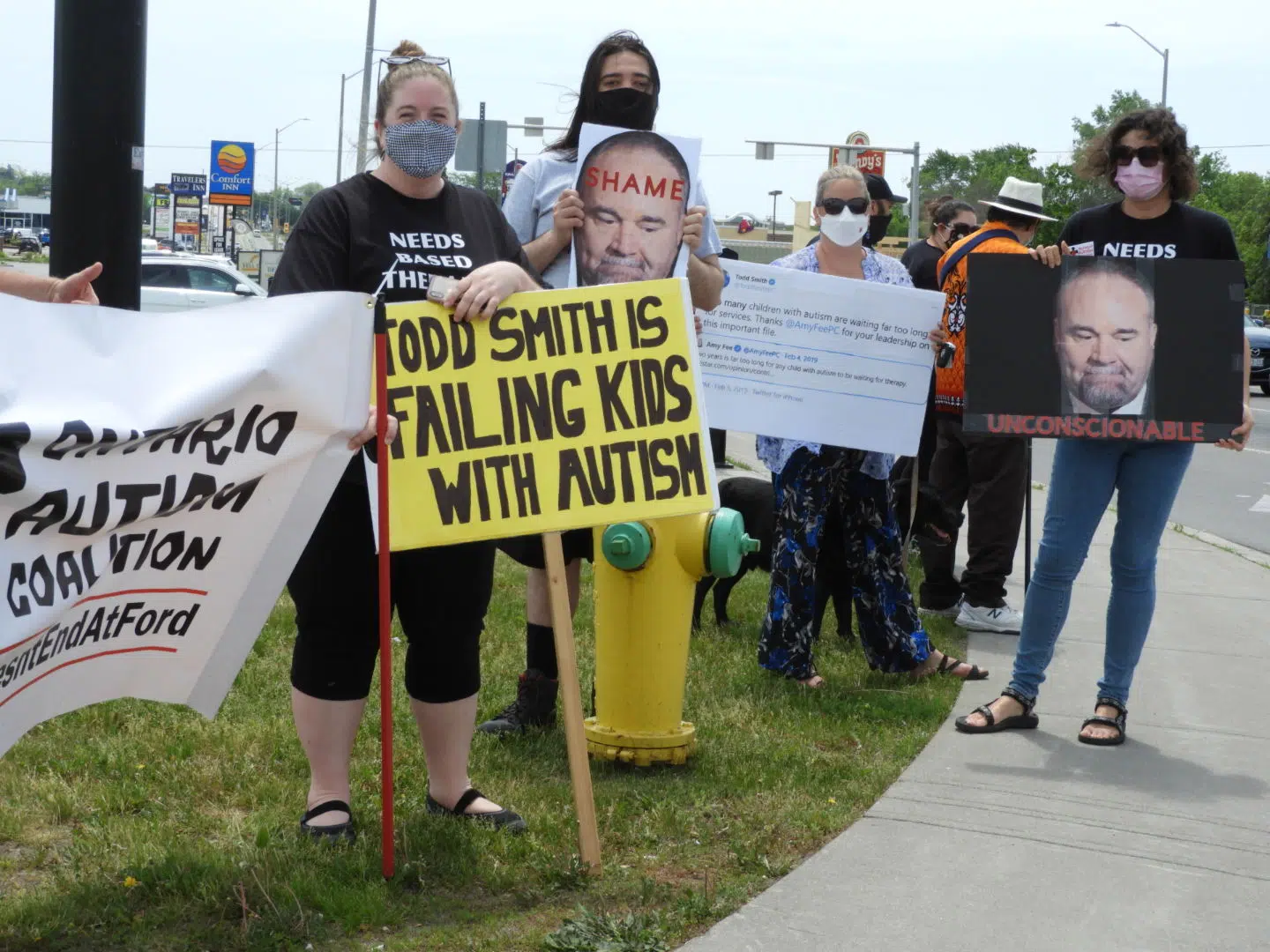“This is what this government has stolen from an entire generation of children, their ability to be independent and to function in society.”
Those are the words of the President of the Ontario Autism Coalition Angela Brandt as that organization continued to protest against what they see as a lack of action in providing services for autistic children and their families.
About a dozen coalition members waved signs at the intersection of Bell Boulevard and North Front Street in Belleville, at the site of a billboard that, earlier this week, sported MPP Todd Smith’s face with wording critical of his work on the autism file.
That billboard was ordered removed according to advertising company Target Outdoors citing an agreement with the property owner forbidding political advertising.
In an interview Brandt said they resorted to a billboard sign at the busiest intersection in the Quinte region because “it was the only way, as a community, that we might finally get our message heard by Todd Smith.” Smith is the Minister of Children’s, Community, and Social Services.
“This government came to power and in February of 2019 dismantled the existing autism program but after we staged protests Todd Smith was made the Minister and there were promises of what we wanted which was needs-based programming but now two years later almost nothing has happened. Over 40,000 kids are on the wait list, which was frozen in 2018. Not one kid has moved off that list. I don’t know how they can sleep at night.”
Brandt says while parents are receiving cash, between $5,000 and $20,000 per child it’s hard to find therapists because the Liberal’s autism program was dismantled when the Progressive Conservatives took power at Queen’s Park.
“Services are infinitely more important than money. They keep saying they doubled the budget (from $300 to $600 million) but almost one third of that hasn’t even been spent yet. The earlier autistic children receive therapy the better. Every year that passes without professional help means more kids becoming adults who can’t live a normal life.”
“I have a 16-year-old who’s on the high needs end of the autism spectrum and I was able to get early intervention for him. He was completely non-verbal and I was told he may never speak. But because he received this early intervention he communicates. He can go out in the community, he can go to school, he can do so many more things than what I was told, than what his prognosis would be. He is so much more capable and as a result as he gets older and becomes an adult he will be able to be so much more independent.”
Smith, for his part, has said on more than one occasion that an expert panel had made over 100 recommendations on how to provide autism therapies and other supports and that therapists and other professionals are being hired in phases so that soon, needs-based therapies will be able to be provided to thousands of kids. He had previously stated that when the program is fully in place it will be one of the best in the world, however it’s a complex process and not one that can be done quickly.






